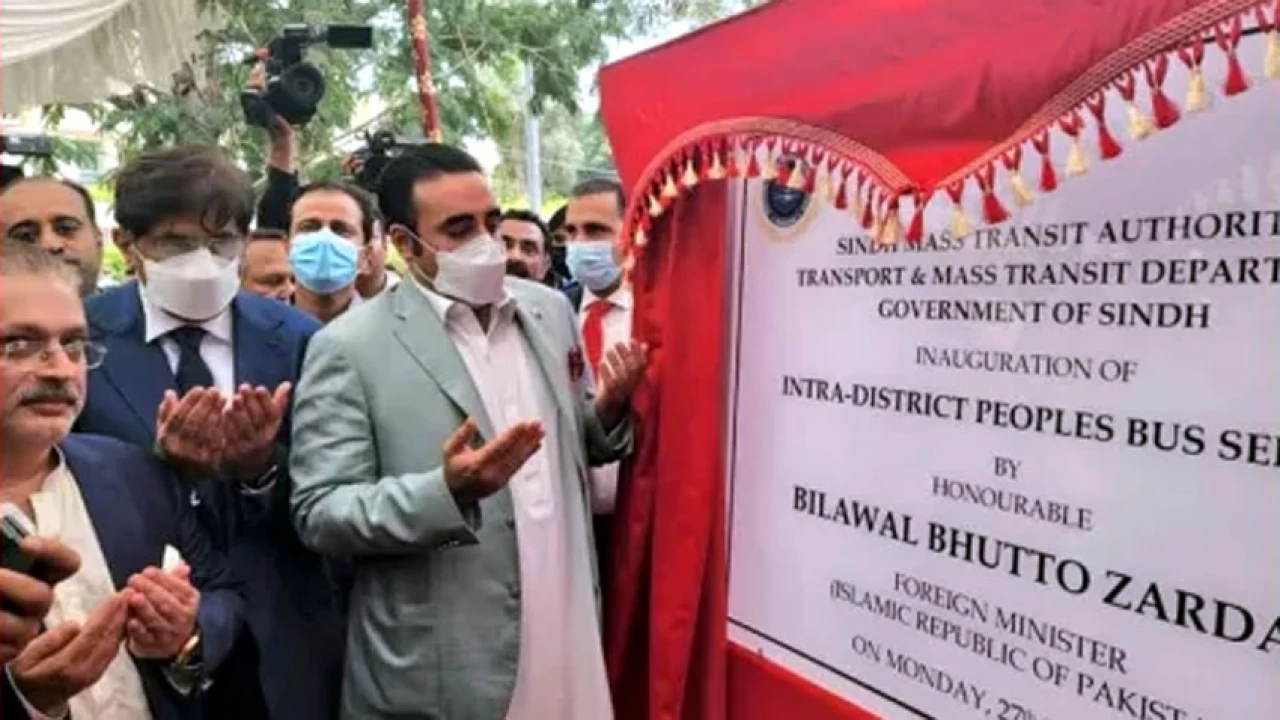In Karachi, Bilawal launches the Peoples Bus Service
.jpg2022-06-27 18_25_45.jpg)
.jpg2022-06-27 18_25_45.jpg)
Seven routes of the bus service will each include 240 air-conditioned buses.
The intra-district Peoples Bus Service was officially launched on Monday by Bilawal Bhutto-Zardari, the chairman of the Pakistan Peoples Party (PPP), in order to assist Karachi"s residents and provide the city with much-needed public transportation facilities.
Syed Murad Ali Shah, the chief minister of Sindh, Sharjeel Memon, Saeed Ghani, and others were standing on each side of the PPP leader.

An estimated 240 air-conditioned buses shipped from China would operate on seven routes in Karachi as part of the Peoples Intra District Bus Service Programme. The People"s Bus Service will start running on Route 1 between Model Colony and Tower, a 29.5-kilometer route with 38 stations along the way. Seven routes in Karachi were decided upon in the first phase, on which 240 buses will run.
Other routes include the 32.9 km distance from North Karachi to Indus Hospital in Korangi, the 33 km distance from Nagan Chowrangi to Singer Chowrangi (Korangi Industrial Area), the 30.4 km distance from North Karachi to Dockyard, the 28.2 km distance from Surjani Town to PAF Masroor, the 29 km distance from Gulshan-i-Bihar (Orangi Town) to Singer Chowrangi, and the 28.9 km distance.
Happy to inform that #Peoples Bus Service has become operational & will operate from Malir Halt to Tower. #SindhGovt has procured 240 new hybrid air conditioned buses for #Karachi which will operate on 7 different routes. Chairman #PPP will formally inaugurate the service today pic.twitter.com/KCvgfXRblE
— Murtaza Wahab Siddiqui (@murtazawahab1) June 27, 2022
Absence of public transportation
Before the official opening, Bilawal"s companion, Karachi Administrator Murtaza Wahab, announced that the bus service would start running today from Malir Halt to Tower.
Private buses, rickshaws, and ride-hailing services make up the most accessible mode of public transportation in a huge urban metropolis like Karachi, which still lacks a well-established mass transit infrastructure. But for the city"s millions of paid and working class residents, the most recent spike in gasoline prices, which is reflected in transportation costs, has made the trip to work an expensive event.
The most convenient means of public transportation in a sizable urban city like Karachi, which still lack a well-established mass transit system, are private buses, rickshaws, and ride-hailing services. However, the most recent increase in gasoline prices, which is mirrored in transportation costs, has made going to work an expensive activity for the city"s millions of salaried and working class citizens.